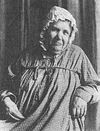

| Previous day | Next day |
| Old Style
August 26
|
Tuesday |
New Style
September 8
|
| 14th Week after Pentecost. Tone 4. | No fast.
|
![]() Commemoration of the Meeting of the Vladimir Icon of the Most Holy Theotokos (1395).
Commemoration of the Meeting of the Vladimir Icon of the Most Holy Theotokos (1395). ![]() Martyrs Adrian and Natalia and 23 companions, of Nicomedia (305-311). St. Maria of Diveyevo, fool-for-Christ (1931).
Martyrs Adrian and Natalia and 23 companions, of Nicomedia (305-311). St. Maria of Diveyevo, fool-for-Christ (1931).
St. Adrian, founder of Ondrusov Monastery (Karelia) (1549). St. Adrian of Uglich (after 1504). Blessed Cyprian of Storozhev, former outlaw (16th c.). Finding of the relics of St. Bassian, schemamonk of Alatyr Monastery (1748). New Hieromartyr Nectarius (Trezvinsky), bishop of Yaransk (1937).
New Hiero-confessor Roman Medved, archpriest, of Moscow (1937).
The miraculous renewal of the Vladimir Icon of the Theotokos in Harbin (Manchuria) (1925).
St. Maximus, archbishop of Jerusalem (347). St. Tithoes of the Thebaid, disciple of St. Pachomius the Great (4th c.). St. Ibestion the Confessor, Egyptian ascetic (ca. 450). St. Zer-Jacob, missionary of Ethiopia. Monk Ioasaph, prince of India (4th c.)
Thoughts for Each Day of the Year
According to the Daily Church Readings from the Word of God
By St. Theophan the Recluse

Tuesday. [II Cor. 12:20-13:2; Mark 4:24-34]
The parable about the gradual growth of wheat from seed portrays, with respect to each man, the gradual growth of what is hidden in a man’s heart, sown and watched over by God’s grace, while with respect to mankind—the gradual increase in the body of the Church or the community of those saved in the Lord Jesus Christ, according to the order established by Him. Through this parable the question is settled: why to this day is Christianity not universal? Just as a man who has cast seed into the ground sleeps and rises, and the seed sprouts and grows up on its own without his knowing how, so the Lord, placing the seed of Divine life on the ground has given it freedom to spread on its own, subordinating it to the natural flow of events, and not forcing them. He only watches over the seed, assists it in individual circumstances and gives the general direction. The reason for this lies in man’s freedom. The Lord wants man to submit to Him on his own, and awaits the inclination of his freedom; this affair takes time. If all depended only on God’s will, everyone would have been a Christian long ago. Another thought: the body of the Church is being created in heaven; from the earth enter only materials, formed also by heavenly agents. The word passes over the earth from heaven and attracts those who desire it. Those who take heed and follow enter, like raw material, into God’s laboratory, the Church, and here are remade according to patterns given from heaven. Those who are remade, upon departure from this life, pass into heaven and there enter into the house of God, each where he is fit. This goes on continuously, and consequently the work of God does not stand still. A universal solemn celebration of Christianity is not required for this. The house of God is created invisibly.




